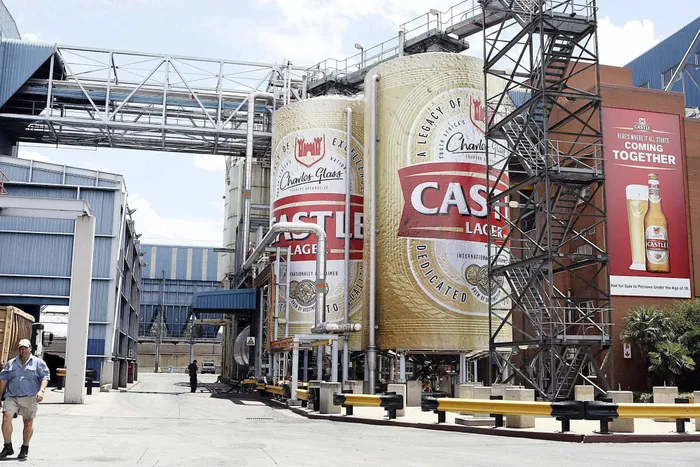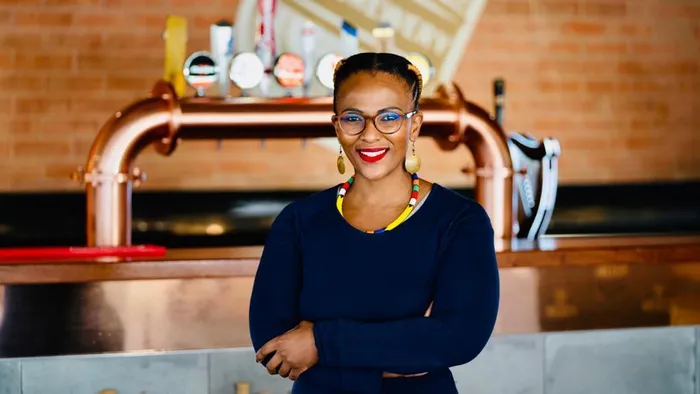Beyond the pint – Why beer matters more than we think
BEER ECONOMY

Beer is more than just a drink. It is jobs, growth, tax revenue, and social connection. The choices the government makes on excise policy will reverberate far beyond breweries, says the author.
Image: Supplied
By Zoleka Lisa
When South Africans think of beer, they often picture a Castle Lager at a braai, a cold Carling Black Label after work, or the laughter of friends at a local retailer. What is less visible is the sprawling economic ecosystem behind every glass poured. From farmers in the Free State to entrepreneurs running township retailers, to the South African Revenue Service tallying billions in excise, the beer industry is deeply woven into the country’s social and economic fabric. As the government revisits the taxation of alcohol, it is vital to pause and recognise what is at stake. This is not just about raising revenue or discouraging harmful drinking — both are legitimate goals. It is also about safeguarding an industry that contributes significantly to job creation, economic growth, and livelihoods, particularly in communities where opportunities are scarce.
The headline figures are striking. These are not abstract numbers. They translate into wages for factory workers, purchases from over 3 700 local suppliers, and income for more than 30 000 retailers and counter-serve businesses that SAB alone supports. In rural areas, smallholder farmers supply the barley and maize that end up in a Castle or Carling. In cities, logistics firms, glass manufacturers, and advertising agencies all find a slice of the value chain. This is what economists call a “multiplier effect.” For every rand spent on beer, multiple rands circulate through the economy, supporting agriculture, manufacturing, retail, and services. In a country struggling with unemployment above 30% and sluggish GDP growth, this ripple effect matters enormously.
The debate about alcohol excise often frames the issue narrowly: should taxes be increased or decreased? But the deeper question is how excise fits into South Africa’s broader economic and social objectives. Excise has two primary purposes. First, it raises revenue for the government. Second, it discourages excessive drinking by making alcohol more expensive. Both are important. But when excise increases are unpredictable and consistently above inflation, they undermine the very outcomes they are supposed to achieve. Between 2012 and 2024, excise on beer rose far faster than inflation or wage growth. For consumers, this means beer has become less affordable. For producers, it means tighter margins and less room for investment. For Treasury, paradoxically, it means diminishing returns: while nominal excise receipts rose by 9% per year, real collections grew by just 1.7%. When taxes rise too quickly, people buy less, and government ends up collecting less than expected.
The people most exposed to this volatility are not necessarily the big brewers, but the small businesses at the edges of the value chain. Think of a retail owner in Katlehong who sells beer to put her children through school. Or a small-scale farmer supplying barley to SAB’s maltings. If beer prices shoot up because excise is hiked far above inflation, these small operators are squeezed first. For township retailers, higher legal beer prices push customers toward cheaper, often illicit alternatives. For farmers, reduced demand means fewer contracts and lower incomes. For government, it means collecting less income tax from fewer taxpayers and collecting less VAT from goods bought due to reduced incomes. The burden falls heaviest on those least able to carry it.
There is also a cultural dimension. Beer has long been part of South Africa’s social life — in celebrations, ceremonies, and everyday connections. From umqombothi brewed in clay pots to Castle on tap in a township retailer, beer is a thread running through our social fabric. It is to remind policymakers that any intervention has ripple effects in society that cannot be captured in spreadsheets alone. Importantly, beer is the most moderate of alcoholic beverages in terms of alcohol-by-volume. Encouraging consumers to choose no and low alcohol beer options aligns with public health goals. But if beer becomes unaffordable due to erratic excise hikes, the risk is that drinkers shift not to abstinence, but to stronger, cheaper, and often illicit options. That undermines both health and revenue objectives.
International experience offers clear lessons. In Canada, excise is automatically linked to inflation, creating predictability. In Australia, duties are adjusted biannually in line with CPI, with caps when inflation spikes. In the UK, excise is often frozen or reduced on beer to support jobs in pubs and tourism. These countries show that it is possible to balance revenue, health, and industry sustainability. By contrast, countries that attempted steep hikes — like Estonia and Lithuania — saw cross-border shopping surge, illicit trade flourish, and tax revenues collapse. South Africa already faces one of the world’s highest rates of illicit alcohol consumption. Policy missteps could make this worse.
What South Africa needs is not simply “higher” or “lower” excise, but a predictable, inflation-linked framework. Legislating a rule that ties excise increases to expected CPI would restore certainty. It would allow businesses to plan, consumers to adjust, and the government to collect steadily. At the same time, incentives for low- and no-alcohol products should be expanded, nudging both producers and consumers toward moderation. Combined with stronger enforcement against illicit alcohol, this would create a balanced system: one that raises revenue, reduces harmful drinking, and sustains a vital economic sector. Beer is more than just a drink. It is jobs, growth, tax revenue, and social connection. The choices the government makes on excise policy will reverberate far beyond breweries. They will affect farmers, retailer owners, workers, and consumers. In a time of economic hardship, what the country needs most is certainty in policy, in livelihoods, and in growth.

Zoleka Lisa is the vice president for corporate affairs at SAB.
Image: Supplied
* Zoleka Lisa is the vice president for corporate affairs at SAB.
** The views expressed do not necessarily reflect the views of IOL or Independent Media.